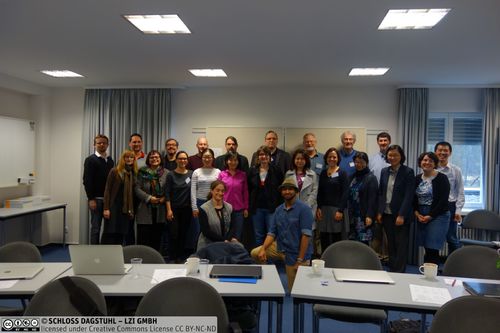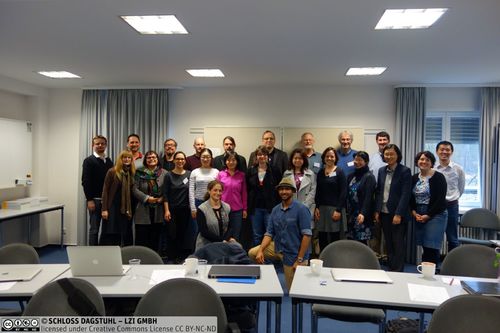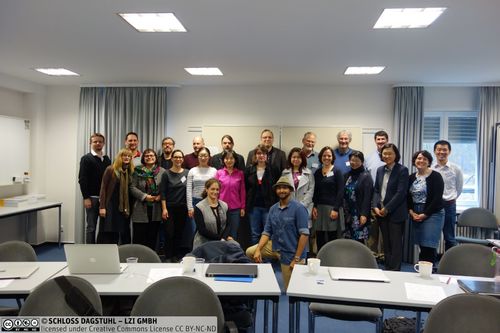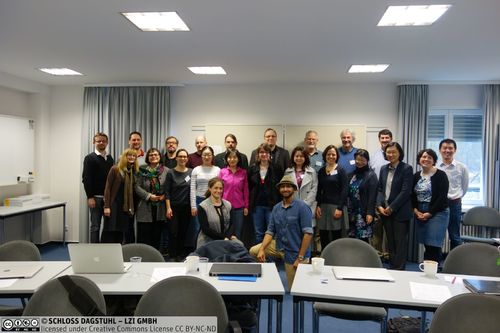Dagstuhl Seminar 17092
Search as Learning
( Feb 26 – Mar 01, 2017 )
Permalink
Organizers
- Kevyn Collins-Thompson (University of Michigan - Ann Arbor, US)
- Preben Hansen (Stockholm University, SE)
- Claudia Hauff (TU Delft, NL)
- Claus-Peter Klas (GESIS - Köln, DE)
Contact
- Andreas Dolzmann (for scientific matters)
- Susanne Bach-Bernhard (for administrative matters)
Schedule
Search engines have come a long way in the past few decades, enabling simple keyword search queries to be answered efficiently and with high quality. This efficiency, however, also means that we largely view search systems as tools to satisfy immediate information needs, instead of rich environments in which humans heavily interact with information content, and where search engines act as intelligent dialogue systems, facilitating the communication between users and content and foster knowledge acquisition.
Users today are relying on search systems to explore, learn and reason about content. In recent years, there has been a growing recognition of the importance of studying and designing search systems to foster discovery and enhance the learning experience outside of formal educational settings.
In this Dagstuhl Seminar, we bring together researchers from the fields of psychology, information retrieval, human computer interaction, library and information science and the learning sciences to discuss the following challenges & opportunities for search systems in providing support for learning:
- Understanding search as a human learning process: when and how does learning occur in the search process?
- How can learning performance and learning outcomes be measured during search? What kinds of features derived from the search process can act as implicit or explicit indicators of learning?
- What is the relationship between the learning process in general and the context (educational, work-related, etc.) of learning, and thus the context in which searching occurs?
- How does collaboration in the search process influence learning outcomes?
- What types of functionality and interventions in search system interfaces and algorithms most help to foster learning?
- How does learning whilst searching manifest itself for different populations such as children, low-literacy learners and non-experts?
The seminar’s goals are threefold:
- To foster cross-discipline ‘search as learning’ collaborations between researchers with very different perspectives and research backgrounds.
- To combine and analyze existing theoretical and empirical contributions in different fields (to date, largely viewed in isolation) in order to determine gaps, potential insights across fields, shared issues, and novel research questions.
- To explore the creation of a shared dataset dedicated towards the ‘search as learning’ topic, thus enabling the wider research community outside this seminar to directly benefit from our progress.
 Kevyn Collins-Thompson, Preben Hansen, Claudia Hauff, and Claus-Peter Klas
Kevyn Collins-Thompson, Preben Hansen, Claudia Hauff, and Claus-Peter Klas
Press Reviews
- Dagstuhl Seminar Search as Learning
Blog entry by Claudia Hauff, published September 15, 2017.
Search is everywhere -- it penetrates every aspect of our daily lives and most of us can hardly manage a few hours without resorting to a search engine for one task or another. Despite the success of existing (Web) search technology, there are still many challenges and problems that need to be addressed. Today’s Web search engines (often also powering domain-specific and site-specific search) are engineered and optimized to fulfil individual users’ lookup tasks. This efficiency, however, also means that we largely view search systems as tools to satisfy immediate information needs, instead of rich environments in which humans heavily interact with information content, and search engines act as intelligent dialogue systems, facilitating the communication between users and content. Web search engines are not designed for complex search tasks that require exploration and learning, user collaborations and involve different information seeking stages and search strategies, despite the fact that more than a quarter of Web searches are complex.
In recent years, there has been a growing recognition of the importance of studying and designing search systems to foster discovery and enhance the learning experience during the search process outside of formal educational settings. Searches that lead to learning, are naturally complex. Research progress in this area, however, is slow, with many more open questions than answers. Several critical bottlenecks and major impediments to advancements in the search as learning area exist, including (i) the reliance on small-scale lab studies to evaluate novel approaches which severely limit the diversity of investigable factors as well as the ecological validity and generalizability of the findings; (ii) the lack of awareness among researchers’ initiatives in this very multidisciplinary area of work; and (iii) the lack of a shared research infrastructure.
The 3-day seminar gathered 26 prominent researchers from the fields of information retrieval, psychology and the learning sciences in order to address the critical bottlenecks around search as learning. The seminar sessions alternated between tutorial-style presentations to learn from each other’s disciplines and interactive breakout sessions to find a common ground and address the most pressing issues related to the four big research themes of (i) understanding search as a human learning process; (ii) the measurement of learning performance and learning outcomes during search; (iii) the relationship between the learning process and the search context; and (iv) the design of functionalities and search system interventions to promote learning.
 Claudia Hauff, Kevyn Collins-Thompson, and Preben Hansen,
Claudia Hauff, Kevyn Collins-Thompson, and Preben Hansen,
- Dirk Ahlers (NTNU - Trondheim, NO) [dblp]
- Leif Azzopardi (University of Strathclyde - Glasgow, GB) [dblp]
- Robert Capra (University of North Carolina - Chapel Hill, US) [dblp]
- Kevyn Collins-Thompson (University of Michigan - Ann Arbor, US) [dblp]
- Gwen Frishkoff (University of Oregon, US) [dblp]
- Ujwal Gadiraju (Leibniz Universität Hannover, DE) [dblp]
- Tim Gollub (Bauhaus-Universität Weimar, DE) [dblp]
- Preben Hansen (Stockholm University, SE) [dblp]
- Claudia Hauff (TU Delft, NL) [dblp]
- Jiyin He (CWI - Amsterdam, NL) [dblp]
- Gabriele Irle (Universität Hildesheim, DE) [dblp]
- Yvonne Kammerer (IWM - Tübingen, DE) [dblp]
- Noriko Kando (National Institute of Informatics - Tokyo, JP) [dblp]
- Yiqun Liu (Tsinghua University - Beijing, CN) [dblp]
- Andreas Nürnberger (Universität Magdeburg, DE) [dblp]
- Heather O'Brien (University of British Columbia - Vancouver, CA) [dblp]
- Rebecca B. Reynolds (Rutgers University - New Brunswick, US) [dblp]
- Soo Young Rieh (University of Michigan - Ann Arbor, US) [dblp]
- Marc Rittberger (DIPF - Frankfurt am Main, DE) [dblp]
- Daniel Russell (Google Inc. - Mountain View, US) [dblp]
- Marcus Specht (Open University - Heerlen, NL) [dblp]
- Michael Twidale (University of Illinois at Urbana-Champaign, US) [dblp]
- Alyssa Wise (New York University, US) [dblp]
- Christa Womser-Hacker (Universität Hildesheim, DE) [dblp]
- Grace Hui Yang (Georgetown University - Washington, US) [dblp]
- Ran Yu (L3S Research Center - Hannover, DE) [dblp]
Classification
- data bases / information retrieval
- society / human-computer interaction
Keywords
- explorative search
- human factors
- search system design
- learning





 Creative Commons BY 3.0 DE
Creative Commons BY 3.0 DE
